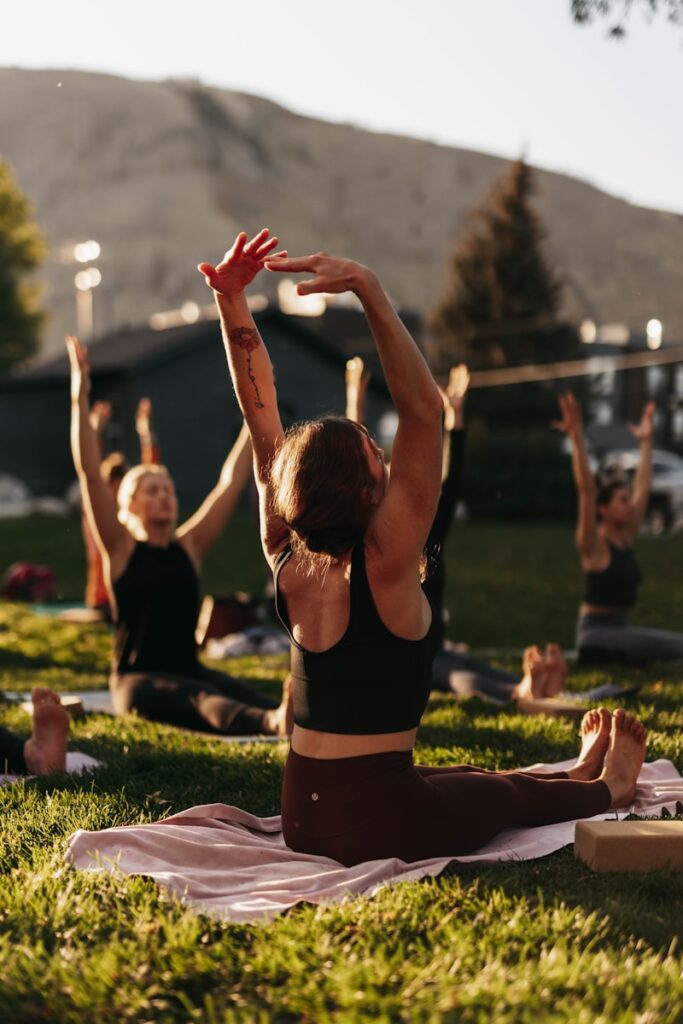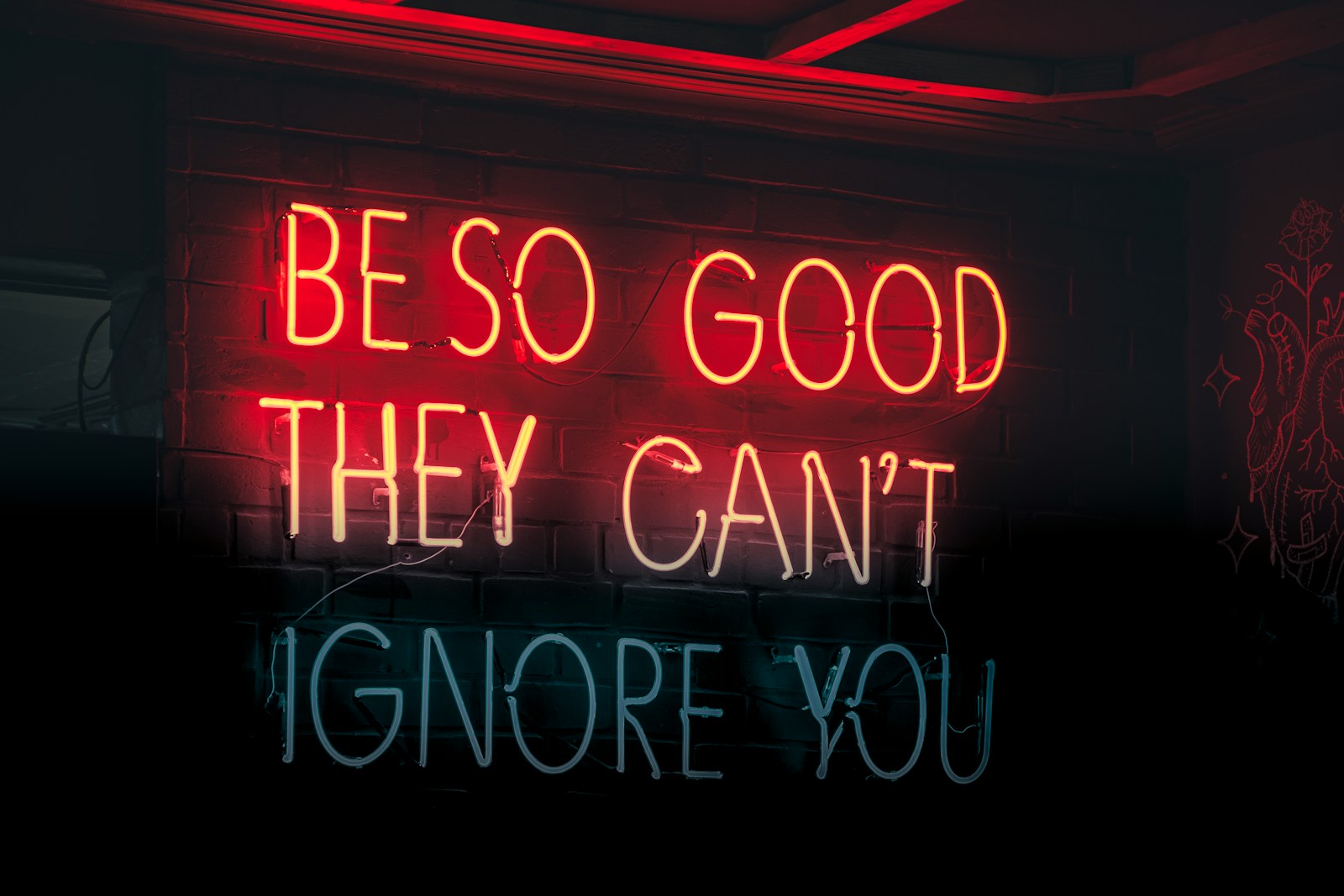Are you wondering how to be a better person?
Improving yourself is one of the most rewarding journeys you can undertake. No matter where you are in life, the desire to be a better person resonates with many of us. But it’s not always easy, is it? Change can be challenging, and sometimes, life pulls us in every direction, leaving little room for self-reflection.
This guide is here to help. By exploring what it means to grow, practicing mindfulness, and learning actionable steps, you can start your journey toward a better version of yourself.

Photo by Marea Wellness on Unsplash
How to Be a Better Person | Understanding the Core of Self-Improvement
Self-improvement starts with clarity. How can you grow if you’re unsure of where you stand? It all begins with self-reflection, which helps you identify areas for personal growth.
Practice Self-Reflection
Take a moment to think about your life. What are your strengths? What areas need improvement? Being honest with yourself is tough, but it’s also the first step toward change. Journaling and meditation are fantastic tools to help you practice self-reflection.
Ready to Start Therapy?
Your healing journey can begin today. Fill out the form below to connect with a therapist who truly listens and understands.
- Journaling: Set aside 10 minutes daily to write about your thoughts, emotions, and experiences. This process helps you identify patterns in your behavior.
- Meditation: Spend even 5 minutes a day focusing on your breath. Meditation strengthens your connection to the present moment and heightens your self-awareness.
Listful thinking—using lists to organize your thoughts and track your self-improvement progress—can also make personal development more accessible and motivating.
Research from the Harvard Business Review highlights the impact of reflection on personal growth and decision-making. With consistent practice, you’ll uncover insights into your goals and values.
How to Be a Better Person | Practical Steps to Become a Better Person
Being a better person isn’t about perfection; it’s about intentional actions that align with your best self. In this section, we’ll cover practical strategies for self-improvement that you can start applying today.
Manage Negative Emotions
Do you feel angry or overwhelmed at times? Negative emotions can cloud your daily functioning and impact your relationships. To manage these feelings:
- Practice deep breathing when stress arises. A simple 4-7-8 breathing technique can instantly calm your mind.
- Counter negative thoughts with positive affirmations. For example, challenge “I’m not good enough” with “I am capable and growing.”
Mindfulness and gratitude go a long way in relieving stress. According to studies, techniques like these help regulate emotions and improve your overall emotional well-being. These methods can also relieve stress by promoting relaxation and helping you better manage daily pressures.
Cultivate Positive Habits
Building better habits can transform your life. Here’s how:
- Eat Healthy: A balanced diet nourishes not only your body but also your mind. Small changes, like swapping sugary snacks with fruits, can make a big difference.
- Expressing Gratitude: Expressing gratitude helps you focus on the present moment and appreciate life. Research shows that gratitude increases happiness. Consider keeping a gratitude journal where you list three things you’re thankful for each day.
- Active Listening: Whether at work or at home, active listening fosters more connected relationships. Focus on what the other person is saying without interrupting, and ask thoughtful follow-ups.
Improve Interpersonal Relationships
Healthy relationships are the backbone of a fulfilling life. Improving relationships should be a key goal. To improve them:
- Cultivate empathy. Before judging someone’s actions, consider their perspective.
- Address conflicts constructively. Managing conflict is a key skill for building meaningful connections—when disagreements arise, use “I” statements (e.g., “I feel hurt when…”) to express your feelings without placing blame.
Studies by Brené Brown show that vulnerability strengthens bonds, making it integral to building meaningful connections.
Create Positive Change
Here’s a truth to hold close: change happens outside your comfort zone. It’s scary but stepping into the unknown is how growth begins. Mindset shifts are essential for embracing change and personal growth, as they help you see challenges as opportunities and inspire action. Whether it’s learning a new skill, joining a group, or simply saying “yes” to an uncomfortable opportunity, go after challenges that push your boundaries.
Lifelong Learning
Never stop learning. Continual growth fuels motivation and improves overall quality. Whether it’s reading, attending seminars, or simply being curious, expand your horizons. Even simpler resources, like podcasts—such as the Bliss and Grit podcasts and Liberated Body by Brooke Thomas—offer uplifting and motivational content for personal growth and well-being. Books like “Own the Room” by Lisa Sasevich also provide life wisdom contained in quick, actionable lessons.
Overcome Obstacles
No self-improvement guide is complete without addressing setbacks. Roadblocks? They happen. The secret is persistence:
- Set realistic goals. Instead of “I will meditate for 2 hours daily,” start with 2 minutes.
- Focus on small wins. Celebrate achieving manageable milestones, like “I expressed gratitude today.”
When faced with challenges, remember progress is never linear. Be kind to yourself and keep going.

Photo by Benoit Vacherie on Pexels
How to Be a Better Person | Mindfulness and Relaxation Techniques
Mindfulness and relaxation techniques are powerful tools for anyone on the journey to becoming a better person. In our otherwise busy world, it’s easy to get swept up in negative emotions and stress, which can take a toll on your emotional health and overall well-being. By making mindfulness and relaxation a regular part of your daily routine, you can create space for calm, clarity, and positive change in your own life.
These practices aren’t just for moments of crisis—they’re habits that help you respond to life’s challenges with greater resilience and compassion. When you take time to slow down and tune in, you’re better equipped to handle negative emotions, make thoughtful decisions, and show up as your best self for yourself and others. Becoming a better person starts with caring for your own emotional well-being, and mindfulness is a simple, effective way to do just that.
Simple Practices to Cultivate Mindfulness
You don’t need hours of free time or a silent retreat to benefit from mindfulness. Even a few minutes each day can make a real difference in your life. Here are some easy ways to bring mindfulness into your daily routine:
- Meditation: Find a quiet spot, close your eyes, and focus on your breath. If your mind wanders, gently bring it back to the present moment. This simple practice helps you let go of negative thoughts and fosters emotional well-being.
- Deep Breathing: Try taking slow, intentional breaths—inhale for four counts, hold for four, exhale for four. This calms your nervous system and helps you stay grounded, especially during stressful moments.
- Yoga or Gentle Movement: Moving your body with awareness connects you to the present moment and helps release tension, supporting both your physical and emotional health.
As Kate Hanley’s book highlights, these small acts of mindfulness can have a big impact on your overall quality of life. By practicing mindfulness, you become more self-aware, kinder to yourself, and better able to handle whatever life throws your way. Over time, these habits help you become a better person—more patient, compassionate, and present in your relationships and your own life.
Relaxation Strategies for Everyday Life
Relaxation isn’t a luxury—it’s a necessity for maintaining mental health and well-being, especially when life gets hectic. Incorporating relaxation strategies into your daily routine can help you manage stress, boost your energy, and stay centered, no matter what the world throws at you.
Here are a few relaxation techniques to try:
- Progressive Muscle Relaxation: Starting at your toes and working up to your head, tense and then relax each muscle group. This helps release physical tension and signals your body to unwind.
- Visualization: Close your eyes and imagine a peaceful place—maybe a quiet beach or a sunlit forest. Engaging your senses in this way can quickly calm your mind and body.
- Mindfulness Meditation: Even a short session can help you reset and regain focus. Apps and guided meditations make it easy to fit this into a busy schedule.
Licensed clinical psychologists often recommend taking short breaks throughout the day to practice these techniques. Whether you have five minutes or just a few deep breaths to spare, prioritizing relaxation helps you stay balanced and resilient. By making relaxation a regular part of your life, you’re not only supporting your own mental health—you’re also laying the foundation for becoming a better person, ready to face challenges with patience and positivity.
In a world that rarely slows down, giving yourself permission to relax is a powerful act of self-care. It’s one more way to nurture your well-being, improve your daily functioning, and move closer to the best version of yourself.
How to Be a Better Person | Feeling Guilty
We all make mistakes. Facing feelings of guilt when you fall short is natural, but it’s not helpful to dwell on them. Instead:
- Forgive yourself. Acknowledge when you are wrong and use missteps as learning opportunities.
- Reflect on how to make amends or improve moving forward.
Author Kate Hanley suggests finding “just the loving kick” you need to continue working on yourself, rather than feeling stuck in guilt.

Photo by Anastasia Shuraeva on Pexels
Book Spotlight: How to Be a Better Person by Author Kate Hanley
If you’re looking for a practical and inspiring guide to self-improvement that doesn’t require a complete life overhaul, Kate Hanley’s book, How to Be a Better Person: 400+ Simple Ways to Make a Difference in Yourself—and the World, is a must-read. As an incredible she’s, Hanley—along with her co-author—offers actionable advice and practical strategies for becoming a better you, making this book a standout resource for personal growth. Reading Kate Hanley’s book provides accessible tips and positive mindset shifts that are easy to implement in your daily life. Kate Hanley offers guidance on everything from interacting with coworkers to supporting your community and caring for your mental well-being, making it an anytime chill guide for quick relaxation and coping strategies whenever you need them. Kate Hanley’s tips are approachable and designed to inspire meaningful action toward self-improvement. For ongoing inspiration, keep this book on your bedside table so you can easily access its wisdom and reflect on its advice whenever needed. If you’re ready to make a positive impact without feeling overwhelmed, this book is a fantastic place to start.
Fueling Your Best Self: The Importance of Self-Care and Ensuring You Eat Healthy
Being a better person doesn’t just mean showing up for others—it starts with how you show up for yourself. Self-care isn’t selfish; it’s foundational. When you prioritize your physical and mental well-being, you build the energy, clarity, and resilience needed to live with purpose and kindness.
One of the most effective (and often overlooked) forms of self-care is what you put on your plate. Nourishing your body with whole, healthy foods supports better mood, focus, and emotional regulation. It’s hard to practice patience, empathy, or positivity when you’re running on caffeine, sugar, and stress.
Here are a few small but powerful self-care habits to incorporate:
- Eat for energy: Focus on balanced meals with fruits, vegetables, lean proteins, and whole grains to fuel your body and mind.
- Hydrate often: Drinking enough water helps you think more clearly, feel more alert, and stay physically well.
- Move your body: Exercise doesn’t have to be intense—walks, yoga, or stretching all support both mental and physical health.
- Protect your peace: Say no when you need rest. Set boundaries. Prioritize sleep.
- Take breaks: Step away from screens, noise, and obligations. Quiet time restores your nervous system and helps you reset.
As Kate Hanley emphasizes in How to Be a Better Person, change starts with the small things. Choosing to care for your body and mind every day—even in simple ways—is a powerful act of self-respect that ripples outward into how you treat others.
Simple Ways to Express Gratitude Daily
Gratitude is one of the most powerful—and underrated—tools for becoming a better person. When we make a habit of recognizing and appreciating the good in our lives, we shift our mindset from lack to abundance, and that ripple effect positively impacts how we treat others. Here are a few easy yet meaningful ways to express gratitude every day:
- Write it down: Start a gratitude journal and jot down three things you’re thankful for each morning or night.
- Say it out loud: Don’t underestimate the power of a genuine “thank you.” Whether it’s to your barista or your best friend, spoken appreciation goes a long way.
- Send a note: A handwritten thank-you card or even a thoughtful text can brighten someone’s day.
- Be specific: Instead of a general “thanks,” say what exactly you’re grateful for. “Thanks for taking the time to listen when I really needed it” has more impact.
- Pay it forward: Acts of kindness—buying someone coffee, holding the door, offering help—are gratitude in action.
- Practice mindfulness: Take a few minutes to reflect on the good in your life and savor it. This quiet habit helps build a deeper sense of contentment.
Gratitude isn’t just about being polite—it’s a mindset that fosters connection, empathy, and joy. And in the spirit of Kate Hanley’s book, it’s one of the simplest ways to make a real difference in yourself and the world.
Creating Change | Growth Begins at the Edge of Your Comfort Zone
One of the most powerful truths about becoming a better person is this: real growth rarely happens when you’re comfortable. Positive change often requires us to face discomfort, try new things, and challenge the habits or beliefs that no longer serve us. It can feel scary—but it’s also where transformation begins. By stepping outside your comfort zone, you open yourself up to leading more purposeful lives, filled with intention and meaning.
Here are a few ways to stretch beyond your comfort zone in the name of personal growth:
- Try something new: Take a class, join a group, or explore a hobby that intimidates you a little. You’ll learn new skills and build confidence.
- Have tough conversations: Whether it’s apologizing, setting boundaries, or asking for help—leaning into honest dialogue helps deepen your relationships and integrity.
- Volunteer in unfamiliar settings: Giving your time to a cause outside your regular sphere exposes you to different perspectives and builds compassion.
- Travel or explore locally: Seeing the world—or even just a new part of your town—can spark fresh ideas and expand your worldview.
- Say yes when you want to say no (sometimes): If fear is the only thing holding you back, consider leaning in. Courage is a muscle that gets stronger with use.
Kate Hanley’s book reminds us that we don’t have to overhaul our entire lives to grow—we just have to be willing to try. Each time you step into discomfort with intention, you become a little wiser, a little braver, and a lot more in tune with your potential.

Photo by Mikhail Nilov on Pexels
Seek Professional Help to Transform Your Life
Sometimes, the path to becoming a better person requires guidance. Dr. Matthew G. Mandelbaum, a licensed clinical psychologist with over 20 years of experience, specializes in helping individuals overcome challenges and achieve lasting personal growth. Much like a life coach, Dr. Mandelbaum offers professional support for personal development, helping clients with mindset, goal setting, and emotional well-being.
Dr. Mandelbaum uses approaches like Dialectical Behavior Therapy (DBT) and trauma-informed care to help with:
- Identifying areas needing improvement
- Managing stress and regulating emotions
- Creating meaningful relationships
- Building resilience and confidence
Working with a therapist can provide the tools you need to improve your mental health and emotional well-being. If you’re ready for a positive change, you can learn more about his services and book a consultation here. His compassionate and personalized care is designed to help you thrive.

Photo by Jyron Barclay on Pexels
How to Be a Better Person | Start Your Journey to Self-Improvement Today
Becoming a better person is a lifelong commitment to personal growth. It’s not about perfection, but progress. Each day, a person makes conscious choices and a person takes actionable steps toward self-improvement. From practicing self-reflection to stepping outside your comfort zone, each step you take brings you closer to the best version of yourself.
Self-improvement is doable, and with consistency, the rewards ripple across your entire life. By prioritizing your own happiness and emotional growth, you can lead a more purposeful life.
Are you ready to take the next step? Explore Dr. Mandelbaum’s evidence-based therapy to guide your transformation, or start implementing the strategies outlined here. The changes may be small, but the impact can be extraordinary—think of it as a sales conversion, where your intentions are transformed into positive outcomes.
Resources to Guide Your Personal Growth
Check out these high-quality resources—websites, books, and tools—that offer reliable, actionable advice to help you grow and make a difference:
- BecomingBetter.org: Self‑Improvement Hub | A curated collection of top self‑improvement tools—from habit guides to mental health tutorials. Explore their resource list →
- James Clear’s Beginner’s Guide to Continuous Self‑Improvement | James Clear provides science-backed strategies on habits, productivity, focus, and more. A perfect companion to Hanley’s actionable approach. Jump into his beginner’s guide →
- 3. Verywell Mind: Self‑Improvement Strategies | Renowned for mental-health guidance, Verywell Mind outlines realistic steps for tackling stress, boosting resilience, and nurturing well‑being. Read their practical tips →
- PositivePsychology.com: Personal Growth Blueprint | Grounded in positive psychology research (Seligman, Csikszentmihalyi), this site offers structured exercises to help you flourish. Find Helpful Resources From PositivePsychology.com →
- Harvard Business Review: Study Your Successes | This article introduces the “Reflected Best Self” exercise—learn how recognizing past strengths can fuel future growth. Discover the approach →
- Verywell Mind Podcast: Episode 173 – Friday Fix: The 6 Stages of Change | A helpful audio guide on applying gradual, sustainable change via the Six Stages of Change framework. Listen or read more →
- Wikipedia: 7 Habits of Highly Effective People | Covey’s timeless framework on character-based habits (proactivity, empathy, synergy, renewal) continues to inspire growth in personal and professional life. Explore the habits →
- Wikipedia: Self‑Reflection & Positive Psychology | Deepen your understanding of introspection and well‑being—vital components for intentional, ethical personal development. Learn about self-reflection → Uncover the roots of positive psychology →
How to Use These Resources in Your Journey
- Explore one resource each week—read an article, listen to a talk, or try a tool.
- Act on one practical tip—whether it’s a gratitude exercise, a daily habit tweak, or mindfulness practice.
- Reflect in writing on your progress: What felt good? What was challenging?
- Adjust and repeat: Choose the next resource, find what resonates, and keep evolving.
These credible resources offer frameworks, exercises, and inspiration to support your growth journey—just like Kate Hanley’s How to Be a Better Person, they’re all about transforming intention into everyday action.


